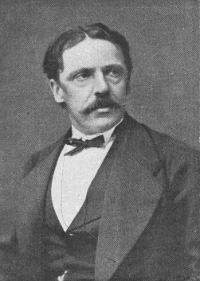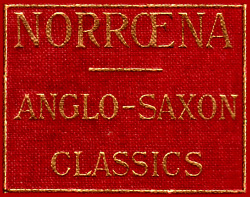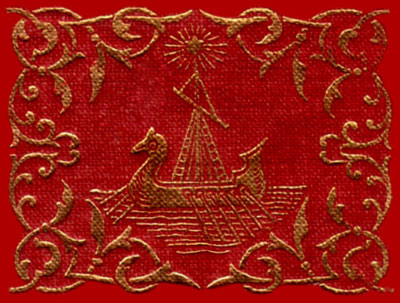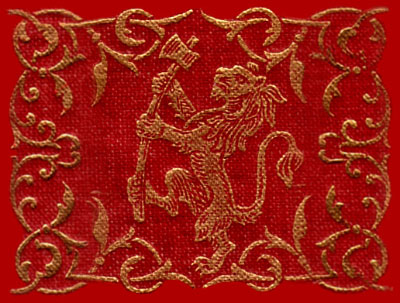|
The following are notes written by Gabriella of vaidilute.com, a very interesting website she built dedicated to the "ancient European pagan religion Ásatrú, and especially our peculiar Lithuanian version of it — Romuva." While I don't agree with many (most!) of the political views that Gabriella espouses on her website, she has done an amazing job of providing e-book resources that are extremely useful to Heathens. I've tried to mirror some of those e-book resources here in the Temple Library in case Gabriella's website ever goes away, but she deserves full credit for these efforts. This particular book, while interesting, is not considered good scholarship by most modern academics or most scholarly heathens. Rydberg tried to "pull everything together" and made more than a few leaps to do this. This book should be seen for what it is: 19th century scholarship, and as such it is filled with biases and prejudices. It has been used by the far radical right to support some of their positions and beliefs. But it is what it is, and has value to the reader willing to keep in mind its flaws. -Ludwig
If you search on Google, then you will see that this book is also available at a few other places. So, why did I decide to offer it on my own website? Well, if you compare my version with the one which is offered on those other websites, you will see that my version is quite different. Simply because it is an exact copy of the original book published in English by Norrśna Society in 1907, as a part of its 16 volume series consisting of translations of Scandinavian and German classics. As for the version that is available on those other websites, it’s somewhat “modernized” and has a lot of modifications. When I compared that newly edited online version to the original book that I have, I could see right away that in some places there are a lot of differences. While I believe that maybe some of those changes were made perhaps as necessary corrections, my overall impression is that it all was a bit overdone. In my opinion, new editing shouldn’t change a book to such a degree that some words and even sentences become almost unrecognizable when compared to original text. At first I was thinking of simply borrowing that already available on-line text and adding it to my library. But then I changed my mind and decided to do everything from scratch. The purpose of my e-library is to offer e-books exactly as they are in printed form, which means with original pagination, index, and footnotes, so they would be suitable for use as reliable resources for scholarly research. If there are no page numbers, how can such an online book be quoted by scholars or students? Therefore, I consider it very important to make each e-book exactly as it is in original. I scanned all 1000+ pages of this book, and then I carefully proofread everything myself (not once, but twice) to make sure that each page is correct. While I can’t give 100% guarantee that there are absolutely no typos or any other errors left, this version is incomparably closer to the original than the one that is available on other websites. The only thing that I slightly modified is the Table of Contents. I added chapter numbers, because there are many places in the text where there are references to various chapter numbers, so I decided that it is important to show them also on the Table of Contents, for easier navigation. And, as I said, I do believe that some corrections in the other version probably are good, because I can see that in the original edition there were some things that simply didn’t make sense. For example, in all italicized text there is used Nordic alphabet character “ś” instead of character “æ”. I don’t think this is correct. But, still, I left everything like it is in original. I’m not an editor, just a librarian... Those of you who also want to compare my version of this e-book with its “modernized” version, you can find it on these websites: http://www.heithni.org/rydberg/index.php As far as I know, this book can be purchased on Amazon.com and from some other Internet booksellers. It was also re-published under a new title Researches in Teutonic Mythology. I have no idea how close to original that one is, but I suspect it must also be some new abridged edition, because there are only 724 pages instead of original 1,058. Anyways, I hope my version of this e-book will be useful for scholars, students, and everyone who is interested in our European heritage.  After a decade of intense study, he wrote several works on the pre-Christian religion of Northern Europe. The investigations were aimed at saving old Germanic myths from Christian and Classical influences. Rydberg published three important studies in Germanic and Norse mythology: Undersökningar i germanisk mythologi I (Investigations into Germanic Mythology I) (1886); Fädernas Gudasaga (Our Fathers’ Godsaga) (1887) (a children’s version of Norse mythology); and Undersökningar i germanisk mythologi II (Investigations into Germanic Mythology II) (1889). The first one, Undersökningar i germanisk mythologi I, was translated into English by Rasmus Anderson, in 1889, under the title Teutonic Mythology: Gods and Goddesses from the Northland. It is one of the most insightful works ever written on the subject of Nordic mythology. Still it is less than half of Rydberg’s work on this subject. His other efforts in this field are: 1) Sagan om Svärdet, 1882, published 1993 (The Saga of the Sword).  Collected works (in Swedish) The Rydberg museum Internet discusion group about Viktor Rydberg’s Teutonic Mythology
|


